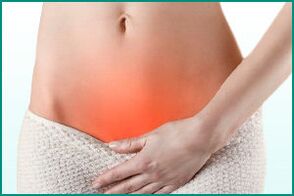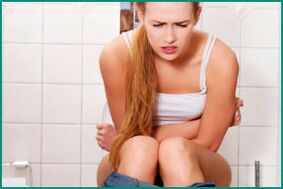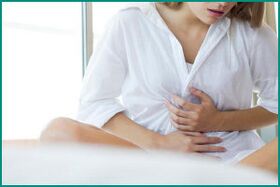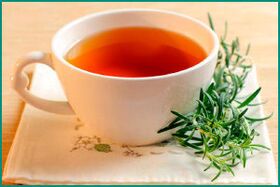Feeling of sharp pain in the lower abdomen, urge to urinate - cystitis causes unpleasant symptoms, the first signs of the disease in women are exactly like this.This is an inflammatory process that occurs in the inner wall of the bladder.The causes and conditions of disease development in women often coincide much more than in men.
What is cystitis?

The bladder is an organ located in the pelvic cavity, its upper part, whose function is to collect urine before exiting through the urethra.This is how the last part of the urinary system is arranged in the male and female body.The bladder cavity is gradually filled through two ureters, which carry fluid filtered from the kidneys.When this organ is more than half full, the person will feel the urge to urinate.This is an unconditioned reflex.
The environment inside the urinary system is sterile, just like the urine excreted in healthy people.Ingestion of infectious agents capable of multiplying under these conditions, as well as chemical irritants and allergens, will lead to the development of cystitis, the first symptoms of which will immediately indicate a disturbance in the described chain.
Inflammation, allergies, and chemical irritation of the bladder can have many different causes.The way the stimulant gets inside is also different.
For women, the so-called ascending route is more typical, that is, the pathogen enters the cavity, emerging from the external urethra.
A similar type of cystitis can occur in young children, especially newborns who do not receive appropriate care at home or have postpartum illness or physical disorders.
The cause occurs in women
It is important to understand the difference between the causes and conditions that cause signs of cystitis in women.The causes are infectious agents and non-infectious factors.The first group includes:
- opportunistic microorganisms;
- pathogenic microorganisms;
- agents that cause sexually transmitted diseases.
Opportunistic bacteria are so called because they exhibit their virulent properties when exposed to suitable conditions.Usually, pathogens of this type are representative of the normal biocenosis of the vagina or intestinal microflora.They are constantly present on the skin of the genitals and act as a protective barrier.As soon as a girl gets hypothermia and has to be treated with antibiotics, which suppress not only pathogens, but also normal flora, the number of representatives of microbiocenosis will increase rapidly.When they reach a critical mass, they stop performing their barrier function, change the pH value of the mucous membrane, and they themselves become the cause of inflammation.
In addition, by multiplying, bacteria spread to areas that are not normal for them, such as the urethra and bladder.Pathogenic pathogens become a source of inflammatory reactions during the patient's stay in any hospital, but most often people can become infected in maternity hospitals and obstetrics and gynecology departments.It is in them that microorganisms that cause nosocomial infections circulate.
These pathogens differ from ordinary pathogens in that during repeated passage through weakened organisms they acquire new characteristics, e.g.
- salmonella, spread through airborne droplets;
- resistant to a large number of antibiotics;
- immunity to broad-spectrum antibacterial drugs;
- the ability to use substances unusual for this species as nutritional substrates.

The clinical course of cystitis caused by pathogenic microorganisms and the opportunity to acquire new properties during development are characterized by painful manifestations.Fighting such cystitis will be more difficult because the range of antibacterial drugs is narrowed.
Sexually transmitted diseases cannot occur separately from the urinary organs due to the peculiarities of their anatomical structure.The most common of these are gonorrhea, trichomonas urethritis and cystitis.Through the urethra, which in women is wider and shorter than in men, bacteria enter the bladder cavity and begin to multiply there.
Non-infectious causes are divided into chemical and allergic factors.Chemical irritants can penetrate the blood and be filtered by the kidneys.These can be pharmaceutical substances, industrial harmful agents, or food ingredients.
Allergens are evidence of a profoundly suppressed immune system, reacting hypersensitively to common substances.
Additional conditions that contribute to the development of inflammation are factors such as: hypothermia, wearing synthetic underwear, neglect of personal hygiene rules, acute and chronic gynecological diseases, childbirth, eating irritating foods, pregnancy.
Early signs

The first signs of cystitis in women require treatment by a specialist and close attention of the patient to the body.You can suspect the development of inflammation in the bladder by detecting the primary syndrome:
- constant itching in the external genital area;
- the appearance of discharge from the urethra;
- persistent, painful pain after urinating;
- pain along the urethra;
- increased urge to go to the toilet;
- change in color and clarity of urine, appearance of sediment.
Without proper attention and treatment, the first symptoms will gradually get worse and the acute disease will become chronic.
Progressive disease
The medical history of a patient with chronic cystitis can become quite extensive if treatment is neglected or additional rules are not followed.Acute symptoms quickly lose their expressive nature and gradually subside, no longer causing significant discomfort.
But there are some signs of a progressive inflammatory process:
- additional secondary infection in the kidneys;
- severe infections accompanied by fever;
- general condition worsens;
- The amount of urine excreted is very small;
- Urine has a strong odor, is cloudy and may contain pus or blood.
Chronic cystitis does not occur in isolation;it is complicated by inflammatory processes in the kidneys and gynecological pathologies.

The body's resistance gradually decreases, infection of other organs causes exacerbation of cystitis and passes with an increase in body temperature, symptoms of general intoxication, severe weakness and malaise.
The feeling of needing to urinate occurs frequently but the amount of fluid secreted is small.This is because it stimulates bladder receptors too much due to changes in pH balance and pathological impurities.
Painful urination, spasmodic pain does not allow rest even at night.
The area above the pubic bone is tight, making it difficult to palpate the abdominal muscles in the lower abdomen.
Urine has an unpleasant, non-specific pungent odor.As you observe, you may notice sediment falling to the bottom.
Classic signs of acute and chronic cystitis
The acute process occurs for the first time after exposure to an infectious agent, chemical irritant, or allergen.Symptoms appear clearly and clearly: sharp pain when urinating, discomfort when urinating, pain in the lower abdomen, itching and burning at the exit of the urethra.There may be a short-term rise in temperature, nausea or weakness, and loss of appetite and may be associated with worsening symptoms after ingestion of irritating foods or drinks.
Chronic pathology is characterized by the disappearance of symptoms, the presence of constant discomfort in the suprapubic area and persistent pain.In the remission phase, the patient feels quite healthy.Exacerbation of the condition occurs after hypothermia, consumption of irritating foods or beverages, or repeated exposure to allergens.
Types of cystitis in women
Cystitis is classified according to many different criteria.
The main types of cystitis include:
- according to the nature of the process: acute or chronic;
- due to the presence of: bacteria, chemicals or allergies;
- by related factors: postpartum, secondary, post-operative.
Postoperative cystitis occurs after abortion, cesarean section, and urine is discharged through a catheter.This medical instrument can become a source of infection.
Characteristics of postpartum cystitis

The postpartum period requires postpartum women to pay close attention and monitoring, especially at home.Compliance with the rules of careful hygienic care and regular urination regimen will help to avoid possible complications in the period after childbirth and additional urinary tract infections.
Postpartum cystitis occurs like any other disease, but treatment is difficult because not all breastfeeding women can take any medication.In addition, this stage is also characterized by damage to the external genitalia, causing difficulty urinating and going to the toilet normally.
Severe forms of the disease rarely develop because the treatment of cystitis does not cause significant difficulties.But most often we are faced with a chronic form that is difficult to treat with drugs if the causative agent is a multidrug-resistant microorganism.
Diagnose
It usually does not cause problems after a thorough history, urine test, and physical examination of the patient.Analytical results showed deviations from the norm: decreased specific gravity, changed pH, presence of pathological impurities in blood, leukocytes, sediments, urate and oxalate crystals.
If necessary, ultrasound and contrast X-ray are prescribed to clarify the cause of the disease.
Treatment
It is imperative to treat acute or chronic cystitis comprehensively.The simultaneous use of different therapeutic methods contributes to the patient's quick recovery.
The main therapeutic agents are:
- antibacterial tablets;
- anti-inflammatory drugs;
- pain relievers and antispasmodics;
- physical therapy (remission);
- diet;
- traditional methods.
Medicines to treat cystitis are prescribed by a specialist.Anti-inflammatory drugs are best prescribed from the non-steroidal drug group;They have antispasmodic and analgesic effects.
The diet involves excluding from the diet sour, pickled, spicy foods that have a stimulating effect.In this case, it is necessary to drink at least two liters of fluid per day to clean the bladder.
Folk recipes

Alternative medicine has a lot of experience in treating urinary infections.The recipes have many positive reviews, which confirm the effectiveness of the methods.But they can only be used in combination with drug treatment.
Good results are obtained by drinking a decoction of parsley roots, chamomile flowers and tincture of lingonberry leaves.Drinking cranberry juice has an excellent antiseptic effect.The medicinal uses of "bear ears" and cranberries have been known for a long time.You can prepare the following preparation and drink it three times a day after meals:
- take the dried herbs of rosemary, loveflower, centaury and rose hips in equal proportions;
- pour boiling water for 30 minutes;
- Boil in a water bath for 20 minutes;
- leave for 30 minutes;
- Filter the drinking water as above.
Drinking alcohol, strong drinks or smoking is contraindicated during treatment.
prevent
Preventive measures for cystitis are simple but effective.It is necessary to carefully follow the rules of care, sexual culture, regularly change hygiene products and underwear, avoid hypothermia and consumption of irritating foods and drinks.


























